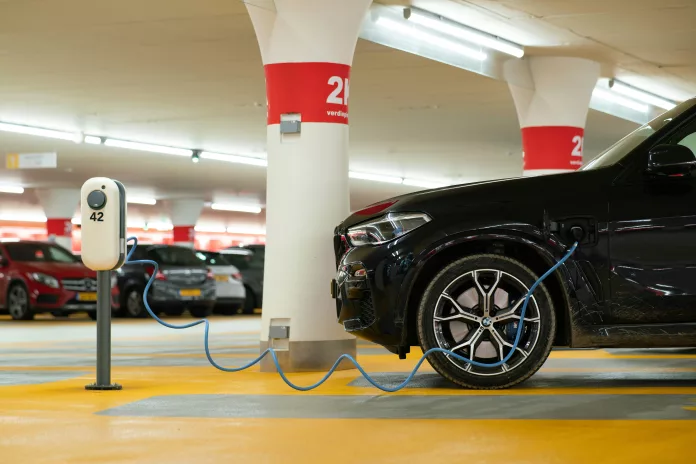With an injection of support from the government’s $5 billion NEVI program, the landscape of electric vehicle charging infrastructure in the United States is changing rapidly. The first three months of the year saw a notable upswing in the availability of public EV fast chargers. Nearly 600 new stations were set up, boosting the national count to approximately 8,200. Notably, Tesla’s Supercharging network has been a significant contributor to this expansion.
The Ratio of EV Fast Chargers to Gas Stations
Amidst the mounting numbers, there is a noteworthy statistic: the country now boasts one fast charging station for every fifteen traditional gas stations. This might seem insignificant, but it’s a milestone that reflects the shift towards electric mobility. After all, most electric vehicle charging doesn’t rely on these fast chargers; they serve as a supplemental option to the more common Level 2 chargers found at homes and workplaces. It’s a reminder that EV infrastructure development doesn’t require a one-to-one replacement of gas stations.
EV Charging Expansion Beyond the Major States
Thanks to the geographic inclusivity of the NEVI program, as well as commitments from large chains like Buc-ee’s and Wawa, states lagging behind in the EV infrastructure game are catching up. Recently, Indiana, Missouri, Tennessee, and Alabama all saw significant increases in their number of fast-charging stations. The investment from Buc-ee’s and Wawa alone amounted to 19 new fast-charging locations across the country. This represents a concerted effort to address ‘charging deserts’ and enhance convenience for EV users without private charging options.
Towards a Profitable EV Charging Sector
Philipp Kampshoff from McKinsey’s Center for Future Mobility suggests that the burgeoning EV charging market is nearing a point where profitability is in sight, which could mark a pivotal moment for the industry. This is particularly relevant for companies like EVgo and Electrify America, as greater usage could translate into financial viability. Tesla‘s approach with its Supercharger network has historically not been profit-centered, but with the landscape shifting and other automakers poised to tap into Tesla’s network, a revision of Tesla’s pricing strategy could result in a new revenue stream amidst its other business challenges.
A Maturing EV Charging Industry in the U.S.
The expansion of the EV charging network in the United States signifies a major progression and signals an industry approaching maturity. While there’s still much to be accomplished, the strides made thus far are undeniable. As the country continues to evolve towards a more electrically-powered transportation system, the foundations are being laid today for an even more robust and comprehensive charging network in the years ahead.


























